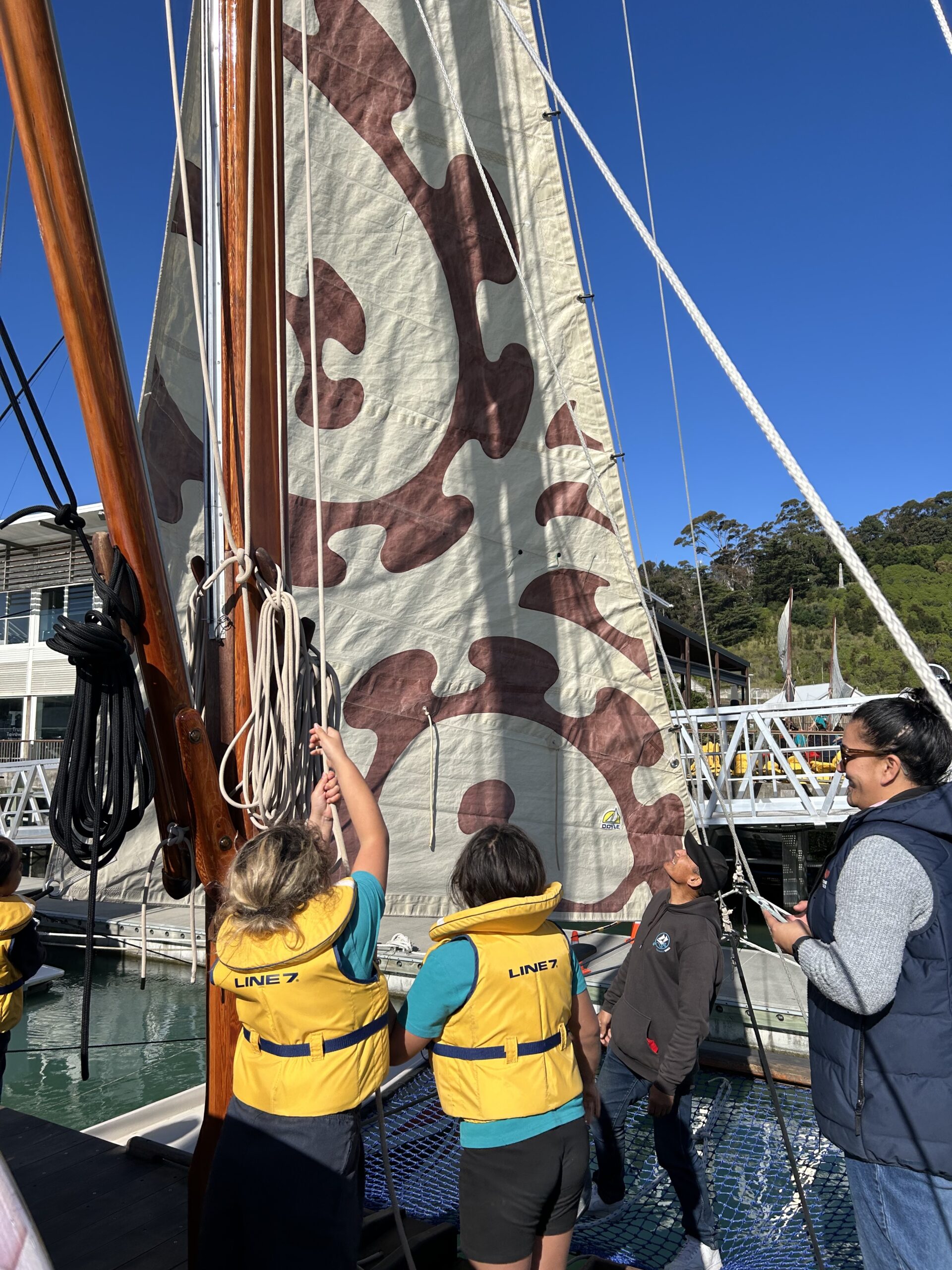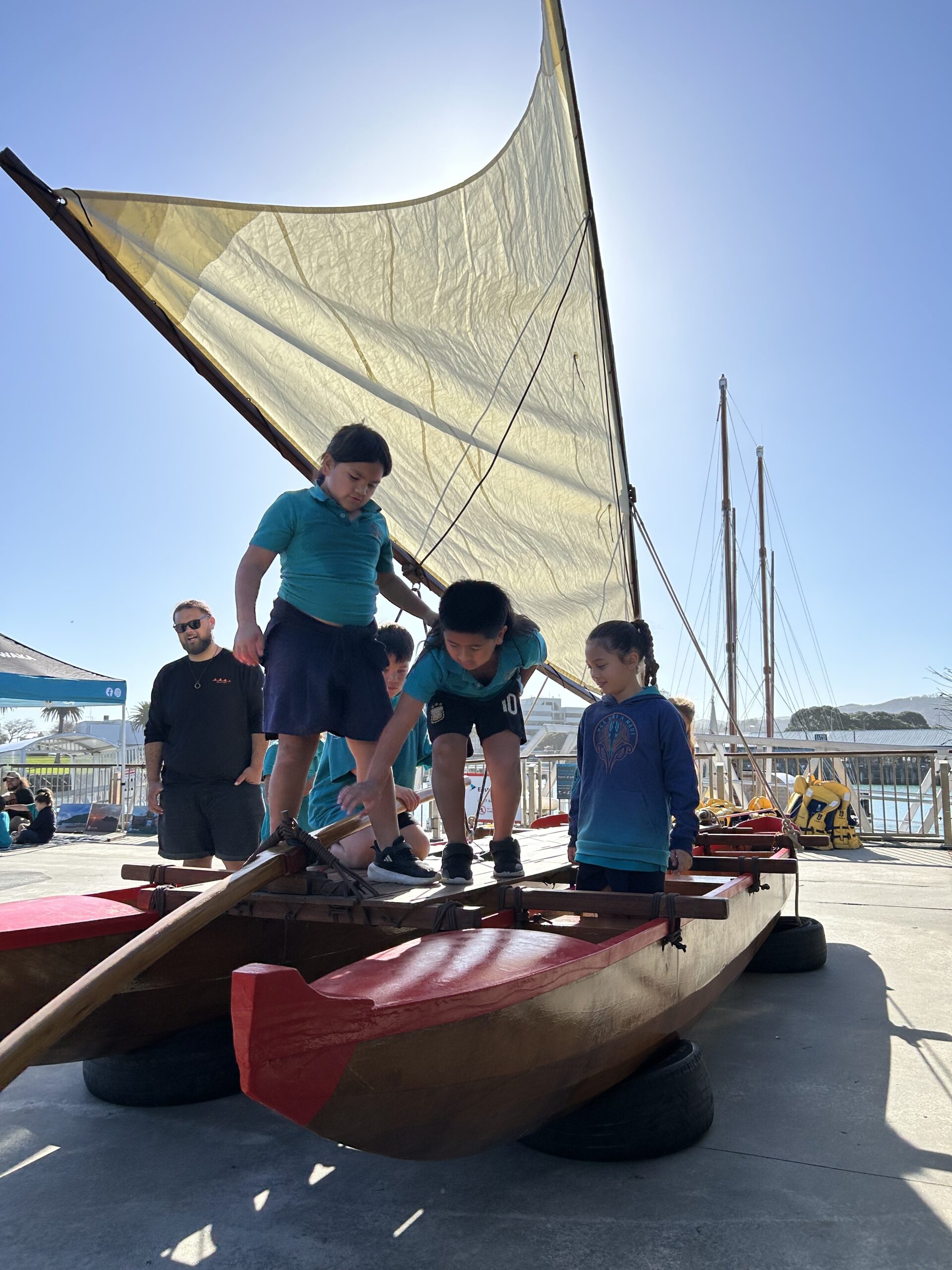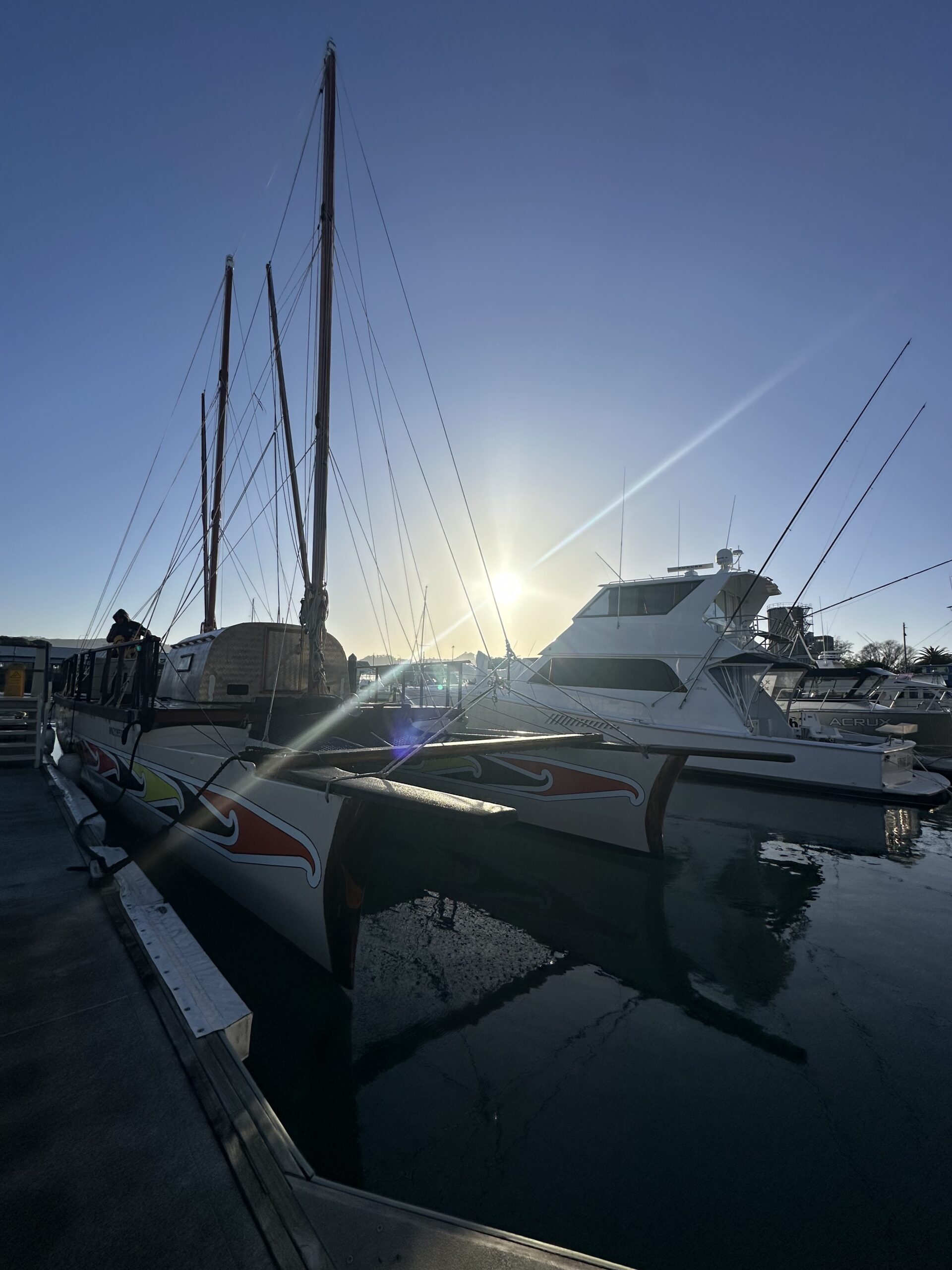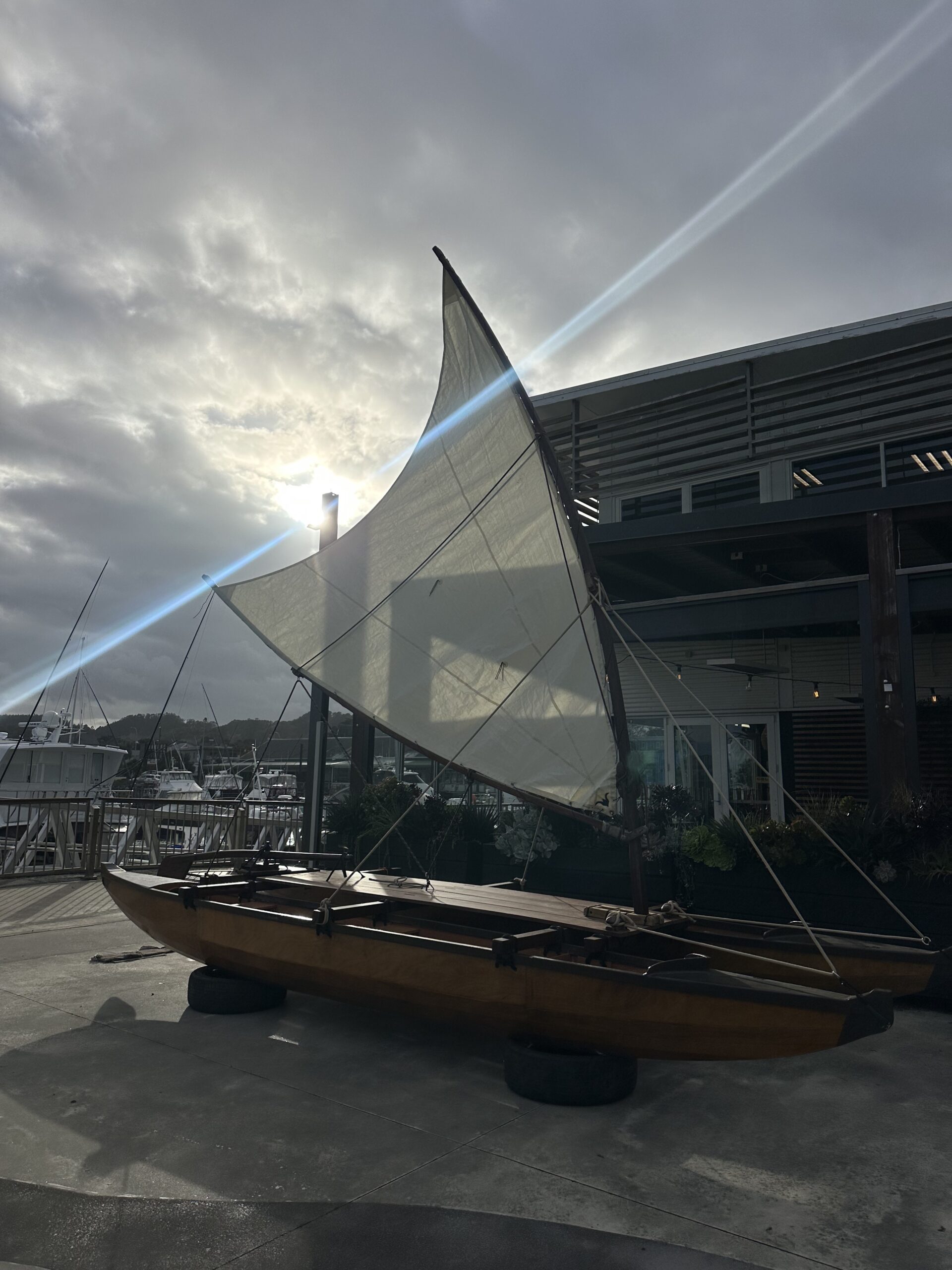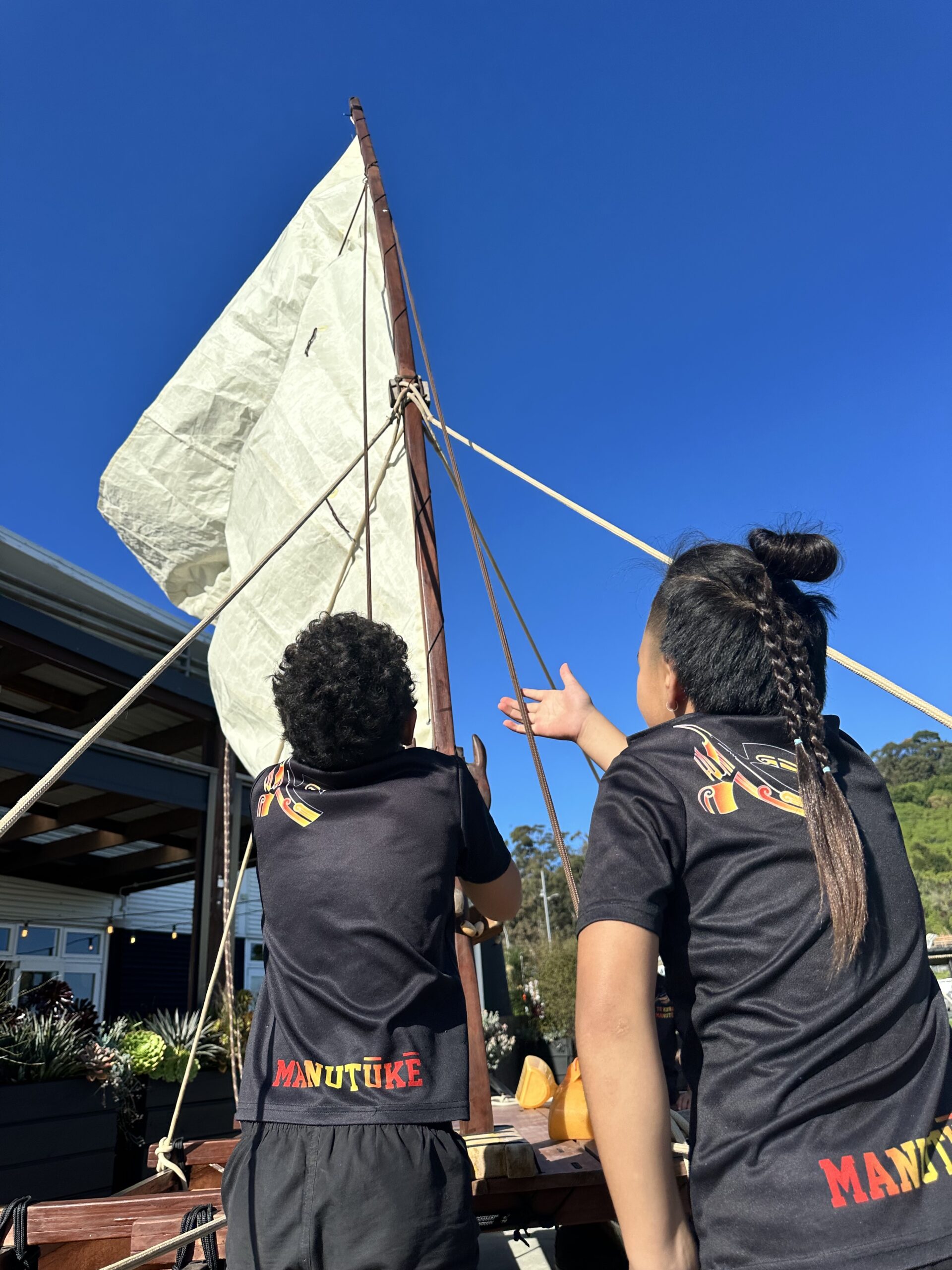Ngahuia Mita
Ngāti Hako, Ngāti Porou, Te Atianga-a-Māhaki
Tonganui Scholarship Recipient 2024
Ngahuia hopes to translate her doctoral thesis into accessible, practical tools to strengthen our collective connection to Tangaroa and Hinemoana through waka.
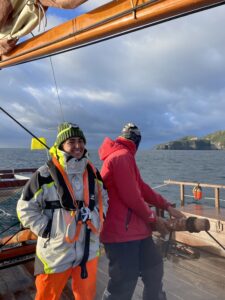 Ngahuia’s moemoeā…
Ngahuia’s moemoeā…
I will run wānanga, share kōrero, and develop resources that translate the findings of my doctoral thesis into practical tools accessible to all to strengthen our collective connection to Tangaroa and Hinemoana through waka.
My PhD had dual foci: Understanding Tairāwhiti Voyaging Philosophies and their embodiment by contemporary Tairāwhiti voyagers and examining how Tairāwhiti Waka enhances hauora. Findings:
1. Tairāwhiti Voyaging Philosophies; theories and principles that guide Tairāwhiti Waka and offer a blueprint for contemporary kaihautū and kaumoana.
2. Tairāwhiti Waka values act as a poutama, guiding rangatahi to become ‘kaitiaki o āpōpō’ of our waka, our people, and oceans.
3. Tairāwhiti Waka facilitates connection to the taiao enhancing hauora through fulfilment and healing.
This research exemplifies how voyaging waka can positively influence identity, rangatahi development, education, rangatiratanga, and hauora; Tairāwhiti waka now has a foundational curriculum for voyaging and leadership, and further development is needed to expand on these findings.
We are developing educational workshops focusing on waka whakapapa, values, and kapehu whetū. This scholarship will support resource creation. Resources that will help tamariki and rangatahi understand our waka and its significance beyond the physical experience of sailing. Waka can substantially impact the adoption and advocacy of Te Ao Māori, tikanga, and mātauranga in the oceans sector.
For many tamariki and rangatahi Tairāwhiti Waka represents their initial connection to Tangaroa. Through this kaupapa we aim to strengthen our presence and influence in the ocean sector, inspiring the next generation of kaitiaki, marine scientists, decision-makers, and ocean champions. My commitment to advancing tikanga, mātauranga tuku iho, and Te Ao Māori remain ongoing. I will continue to work as a researcher on kaupapa that contributes to our oceans’ and people’s health through waka hourua.
Kauapapa update from Ngahuia
What were the major outcomes of this kaupapa?
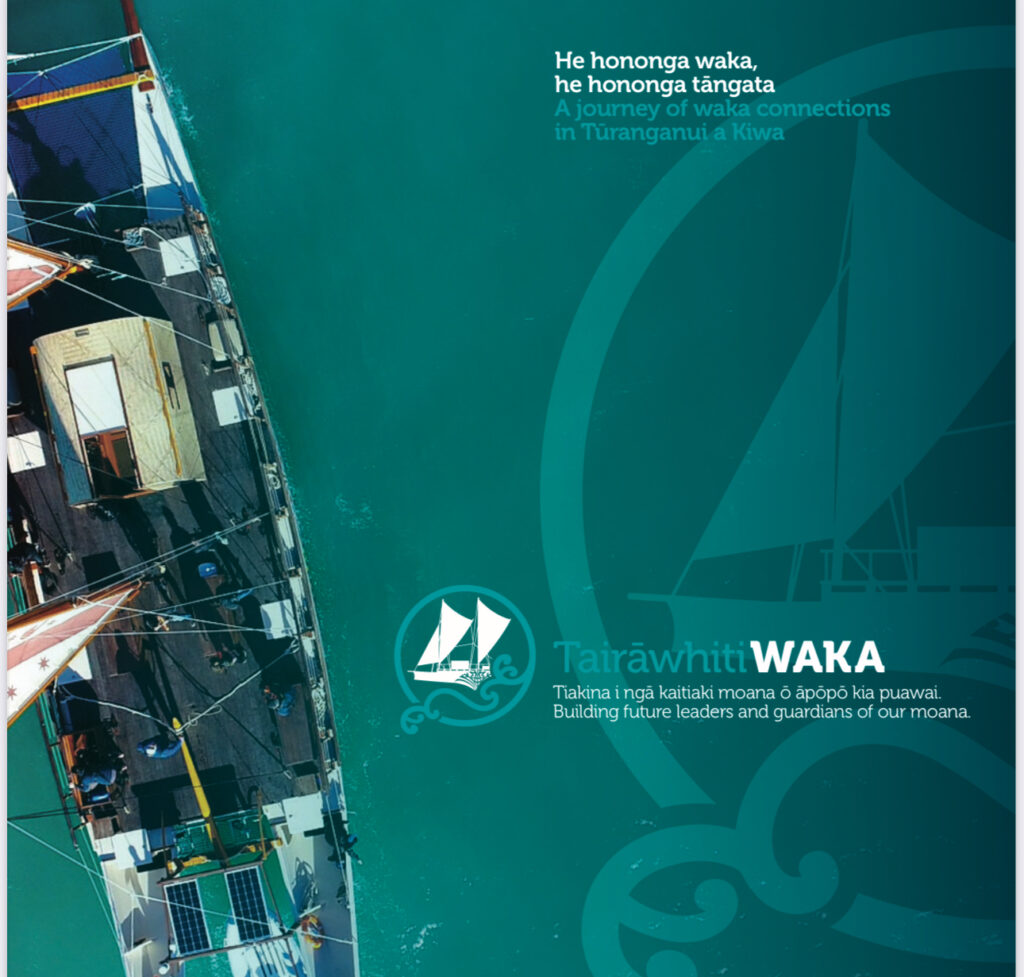
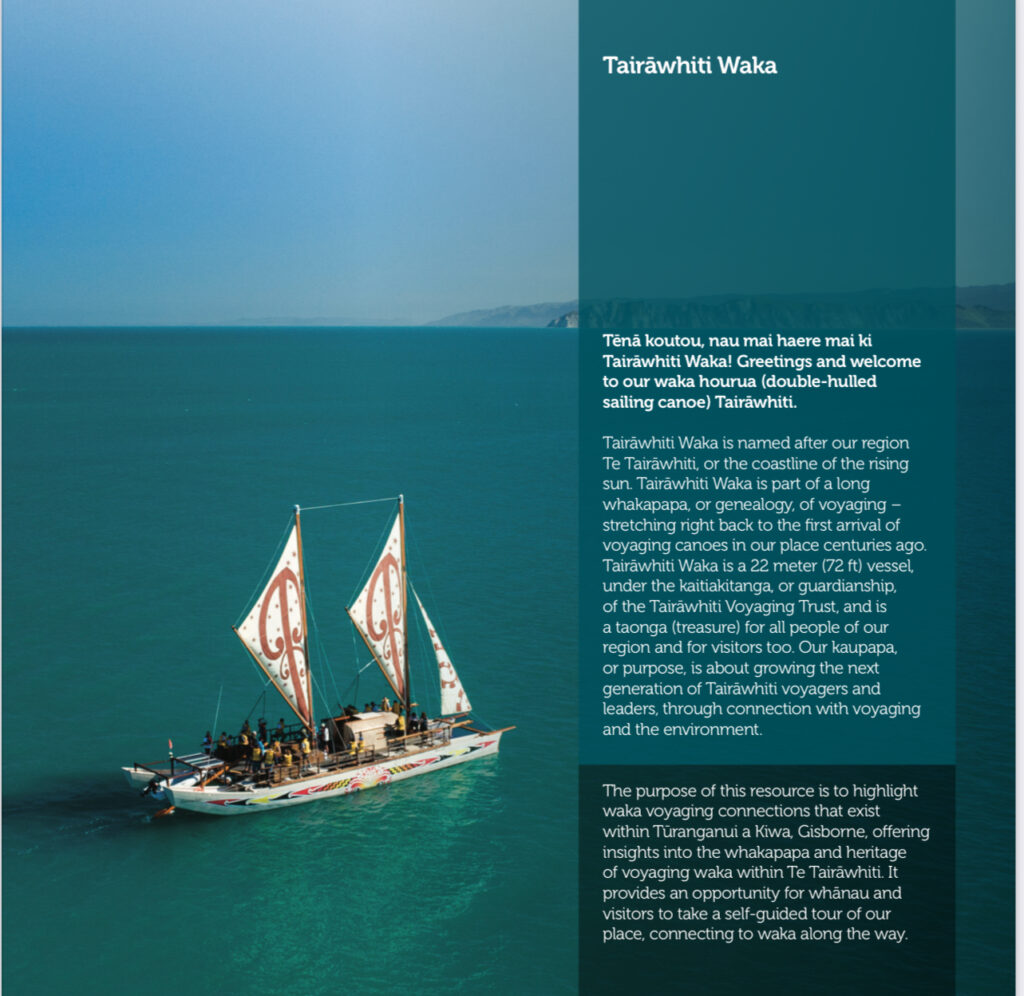
As part of the delivery of our Tairāwhiti Waka educational workshops we collected feedback through physical surveys from the teachers. This feedback was overwhelmingly positive and the kaiako appreciated the opportunity for their tamariki and rangatahi to connect with kaupapa waka outside of the classroom. They also commented on the range of activities, how they were hands on and also delivered entirely in Te Reo Māori where necessary and appropriate. In terms of the resources that we have created – as the production remains ongoing the impact and benefit of these remains to be seen. However Tairāwhiti Voyaging Trust has an impact management plan and measures that we will use to track the progress of these for our waka and community.
What were some of the challenges your kaupapa faced during its implementation?
The main challenge in the implementation of this project was balancing the development of these rauemi alongside other mahi and operation of our waka hourua, also capacity of local creatives to assist in the production of some of the resources we are seeking to create.
How did this kaupapa benefit from the Tonganui Scholarship?
The support provided by Tapuwae Roa through the Tonganui Scholarship was invaluable in the development of our resources and kaupapa – having funding enabled us to produce the digital and physical resources that we hope will ultimately reach every tamaiti and rangatahi within our region. Having the funding from Tapuwae Roa meant that the production of these did not impact on pūtea that is otherwise needed to maintain the operation and running of our waka and kaupapa.
What are your future plans for this kaupapa?
We (Tairāwhiti Voyaging Trust) have been fortunate to be supported by a Royal Society of New Zealand research fellowship moving forward that will enable us to investigate kaitiakitanga within waka hourua practices, by studying the lived experiences of those involved in waka voyages. This will yield deeper insights into fundamental values and principles like whanaungatanga social connection and manaakitanga principles of care. The research will provide us with a deepened understanding of how waka practices influence identity and hauora health and overall wellbeing. The research will also support the preservation of mātauranga knowledge and kaupapa practices surrounding waka hourua double hulled sailing canoes for future generations – which inherently includes an examination of how connection to Hinemoana and Tangaroa affects this mātauranga and associated practices.

